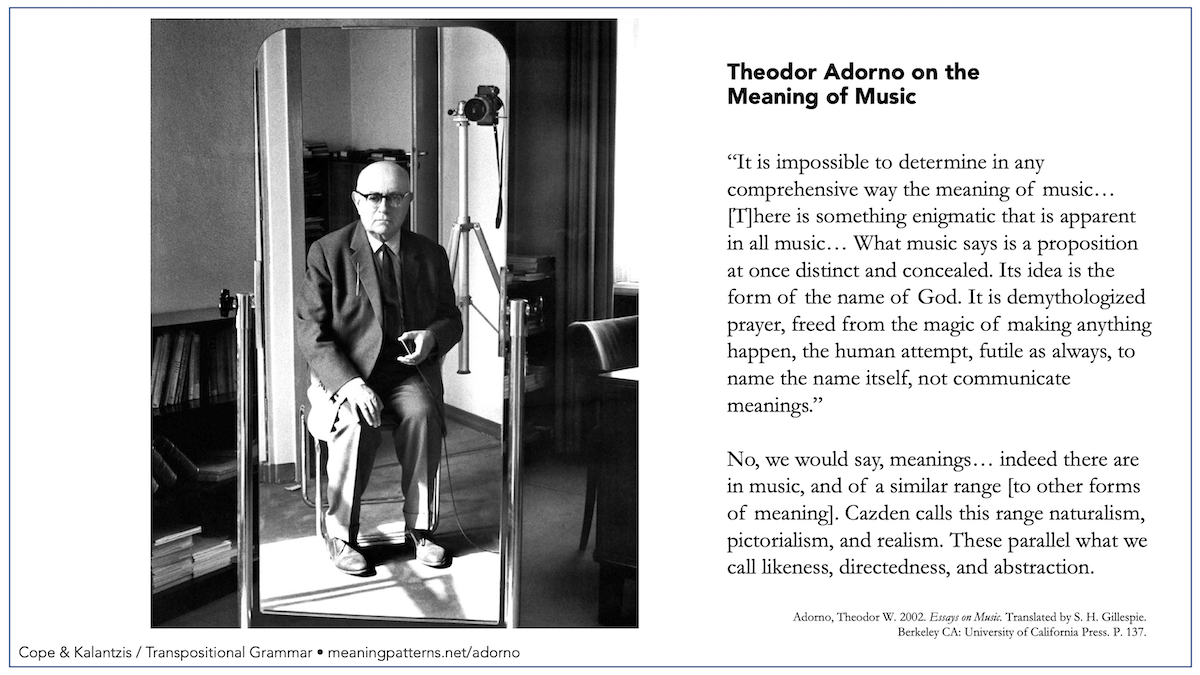Adorno on Music

Listen: Theodor Adorno, Six Orchestral Pieces
Reference: Kalantzis, Mary and Bill Cope, 2020, Adding Sense: Context and Interest in a Grammar of Multimodal Meaning, Cambridge UK: Cambridge University Press, pp. 112-17.

Listen: Theodor Adorno, Six Orchestral Pieces
Reference: Kalantzis, Mary and Bill Cope, 2020, Adding Sense: Context and Interest in a Grammar of Multimodal Meaning, Cambridge UK: Cambridge University Press, pp. 112-17.